- Home
- Hilary Mantel
The School of English Page 2
The School of English Read online
Page 2
He glared up at her. ‘Obviously not. Moron.’
Joshua’s trousers slid down around his hips, fell in folds over his huge trainers; it was a style abandoned now on the street, but he and his school chums would stick loyally, for cloistered in Wiltshire half the year they knew no better. Such butter-fed oafs, oozing resentment; they sat in the kitchen smoking, they dropped their ash straight on the floor and laughed, they poked her with their toes and pretended it was by accident as she crept around their ankles with dustpan and brush.
‘Are you alone?’ she said. ‘School knows where you are?’
It came to her, it is Joshua and his ilk who hook the little calves from the nursery frieze, and bite their heads off without even skinning and roasting. Impossible to imagine, that his infant palms in wonder had ever patted the contours of a painted farmyard, or that his childish gaze had rested on a twirling mobile of bluebirds and dragonflies.
She looked him over. He was blocking the stairs. The number ‘69’ was plastered on his grey marl torso, and the hood of the garment was drawn up so his face shone innocent, pink as ham.
‘Do not resent me, Joshua,’ she said. ‘You asked for explanation of your punishment. I gave it.’
‘Make food,’ he said.
‘Very well. I can do that. What would you like?’
‘Call me sir.’
‘No.’
‘Call me sir.’
‘It is not right, Joshua. Even your father, who is made Sir by the queen, says “You must call me Mike.”’
‘I don’t care what you call that turd,’ he said, ‘but you call me sir or you will be sorry.’
‘I expect I will be sorry anyway,’ Marcella said. ‘I usually am.’
That night, she heard the sounds of the party below. The smash of shattering glass. The panicked thump, thump of music brutally dragged from its mother, whose name is melody: music wailing and thrashing like an orphan left in a field. What should she do? Joshua had simply not replied to her objections. As if he had not heard her. He had elbowed her aside. She wondered if he really had, or if it was just an expression. Her flesh seemed shaped for his elbow, hollowed; she imagined the bruise. She rehearsed the story she would give to Sir Mike. Mob-handed, and no warning, and bringing strangers; your son has elbowed me aside. What am I to do? In advertising, Sir Mike, you did not state, ‘sole charge’. If you had stipulated, I would have said, who, me, Marcella, control that large boy?
Since she was in this job, roof over her head, not exposed to random street theft, she had a mobile phone, and she could have phoned Sir Mike and the lady; except that her phone was downstairs, inside her bag, which she had left by the coffee machine. She could picture it on the granite worktop, by the sapphire pod; though pod would long ago be lost in the violence. It was a black bag of good quality imitation leather; she had an eye for these things, coming as she did from a country where the people were adept in faking, in the application of false logos and the manufacture of false identities for hardworking citizens going overseas. Why, she wondered, do they not spray the bags with false leather scent? Nothing else is wanting. She could see the bag in her mind’s eye, soft and squishy as best leather should be. Inside was fifty pounds. It was her life savings, which she had been able to make only since she came to this house. She knew the party guests would have robbed it long ago.
By midnight, she had thought, they will fall quiet, go down to the basement to watch porno, I shall then steal down. But at midnight more youths surged in, the music rocked the foundations. Every few minutes, fresh gatecrashers hollered from the garden or barged in at the front door. As they thundered below, security lights flashed from neighbourhood gardens, and she felt as if she were trapped, in a distant country, in the long equinoctial of a tropical storm. The eye of the storm passed over her, and pinned her to the white wall of her room, where all the district could see and judge her: clueless, useless. It was ten o’clock when the first partygoers had begun to arrive and, after being elbowed, she had retreated upstairs. It was now 1.30 a.m. Soon, she thought, some of them must fall down, out of exhaustion. Perhaps I shall hear the crash of their fall. Perhaps I may be summoned for cut heads or cardiac resuscitation; for which I have certificates. It struck her that if she were to save a life, any dereliction of her duty would be excused. The parents of the young life saved would be sure to reward her. Perhaps they would give her a job, even, with a proper bed and a three-day weekend every second week: arrangements making for self-respect and mutual consideration.
She took up a position, vigilant, just outside the door of her room. At the sound of feet coming up, she planned to retreat and draw the bolt. She listened for anything she could pick out, above or below the music’s pounding beat. That morning, she had been up at four, for final packing for ski break. It was therefore almost twenty-two hours since she had slept. Despite the racket she must have dozed, still on her feet, her head against the wall. When a police siren sounded, she woke with a start. She took the risk of creeping down a half-flight to the landing, where from a narrow window she could see a slice of the street; and from this angle she saw segments of an ambulance lurch to a halt, and fractions of a youth led towards it, his head dropped and a silver blanket shawled around him, like a magic cape that protects from spells.
It was not Joshua. If she had seen him removed, she might have risked going downstairs to pick her way among the fallen bodies. Any partygoers who were still upright would probably not mind her, or even notice her; they would know by her demeanour that she was there to clean. But with Joshua in the house she could not risk it. Now she thought of it, she believed he had hit her. There was a dragging ache in her chest she could not otherwise explain. There was soreness behind it, like a punch: knuckles against her breasts.
Once the police and ambulance had come and gone, there was an uneasy peace; sudden screams cut into it, and the banging of doors. She could listen against this quiet, and interpret: it was more frightening than the noise, which had removed all responsibility to understand what she heard. Against that music, that brute with its alien pulse, no one could oppose a small, human action. But now one must decide. Marcella decided to sleep. She slapped her hand down on the top of the cabinet, and began to remove her bed.
It was space-saving, the lady Sophie had said, on her first day when she showed her where she would live. Marcella bit back an urge to say, but it is my space, and I would rather not save it, I would rather have a proper bed. ‘I hope you find it comfortable.’ The lady looked at her as if she did not like what she saw. ‘The last Filipina was small-boned.’
‘I am not Filipina,’ she said.
‘But of course, if there’s a problem, do just say.’
‘There is no problem,’ she had said; that was the answer the lady wanted to hear.
Her sleep, towards dawn, was uneasy. When she woke it was nine o’clock. In silver light, in another country, ski trip had begun. Here, the rain fell. All that day she did not go down. When she did she would have to clean up the vomit and glass, perhaps the blood. She was sensitive to the noises of the house, experienced in them, being ever-alert not to intrude on the family’s privacy. So from signs like the flushing of lavatories, she became aware that several youths remained. The presence of others might offer some protection against Joshua; but then, did she want to meet a gang of them, truculent and still drunk – or worse perhaps than drunk?
Soon the weekend would be over. They must surely have places to be. Parents would expect them, schools. Then she would go down and try to rectify the damage. But first she would eat.
She had taken nothing since her guilty cup of coffee, standing at the counter: the cantucci in a glass jar, she had not dared, though now the thought of almond and orange peel tormented her. There was no food in her room. When she first came to the house she had kept cereal bars, but Sir Mike found them. He had apologised for searching her room in her absence but explained that the last Filipina had agreed to hide Joshua’s stash of drugs, so
they found it wise to perform random searches every few days.
‘But I would never hide drugs,’ she had said.
Sophie, the lady, had said, ‘He gave the last girl no choice.’ She said to Sir Mike, ‘He can be very persuasive, your son.’
‘His son?’ Marcella had queried. ‘He is not your son also, lady?’
‘Good God, how old do you think I am?’
‘Forty,’ Marcella said, truthfully.
‘She fucked off to Vancouver!’ the lady shouted. ‘His own mother. She left him. She couldn’t stand the sight of him, so now I’ve got him, for the rest of my life.’
Marcella was bemused. Is it possible that the wife had made this journey mentioned, not on purpose to leave her husband, but in order to leave Joshua? Did people run away from their own children? She would have thought it impossible, till she came to this family. ‘I have led sheltered life,’ she admitted. She turned to Sir Mike, a question on her lips, but he said, ‘Marcella, if you wouldn’t mind, and I say this more in sorrow than in anger, would you not keep those cereal bars in your room? It encourages vermin.’
‘Also,’ the lady said, ‘could you please either call me Sophie, which would be quite all right, or Lady Sophie, or your ladyship, if you must, but don’t call me “lady”. Because it’s just … uncouth.’ She turned at the door. The random search was over. Her voice was cold. ‘Besides, those bars are crammed with sugar and additives. They market them as health food, but seriously, have you read the label?’
After hunger, or rather, with hunger, came the boredom. Marcella had a radio in her room, but she did not dare play it; she hoped Joshua had forgotten her, she did not want to remind him she was there. The eye must have some relief from the white wall, from the yellowish veneer of the chest of drawers that were not drawers, from the scuff mark where the last Filipina had dragged her suitcase across the paintwork. She had a copy of the Evening Standard, three days old. She read it and read it. She thought of The Lady, of the room over Cheep Cheep Chicken, of the hot breath of her compatriots when they gathered, the garlic and ginger; of the green crosses, red circles and stars of blue ink. She read the situations on offer but she did not understand the jobs. Dry liner. What is that? Perhaps she could do it?
Then after the boredom and the Evening Standard, the need to pass water. She had a plastic flower vase, and when it was half-full she stood on the chair, balancing it carefully, and opened the attic window. If someone were on the roof, she thought, let us say it is a bird or a man mending the guttering, let us say it is a seagull far from the sea; it will watch a thin yellow hand appear, sliding round the frame; it will see a cautious tilt of the vessel, then the thin stream running down the slates.
Once she had relieved herself in this way, she sat down on her chair and allowed herself to sip from the tumbler of water that, by sheer good fortune, had stood by her bedside when the siege began. It was cloudy, and a small fly or midge had fallen into it, and when she dabbed at it with her finger it dipped beneath the surface, evading her. Finally she trapped it against the side of the glass. She tried to lift it out, but it simply smeared itself, dark and liquid like a spot of blood. Its filthy insect essence was now in the water, but she drank it anyway, allowing six sips. She hoped that before she was sick with hunger, before her bowels became insistent, Joshua would roll out of the house, like a conqueror leaving a blighted nation behind him, and simply go back to his friends in Wiltshire, where he would boast of how he had outsmarted his parents and smashed the help with his arm so she fell and banged her head.
But this did not occur. In the late afternoon, Joshua came up the stairs and knocked at her door.
‘I thought he might be too sick,’ she told Mr Maddox the butler. ‘Or too lazy, or else simply forgetful of me. But he was not any of those things, he was at the door. I knew that the bolt would not hold him for long. Though I am bound to say, he did not try at once to force entry.’
Ever since she had said the word ‘rape’, the butler had been attentive. Now, she closed her eyes, leaning against the wall of the panic room, and she could hear his impatience; he wanted the rest of her story. ‘Could you not have called for help?’ he asked her.
She shook her head. The street was packed with houses, but who in Notting Hill would hear one lonely female voice from an attic window? Besides, what sort of help would she have called for? ‘I was not,’ she deployed the word carefully, ‘a casualty. No one had shot me. I had gone into my room to panic.’
The butler said, ‘Come, Marcella, you can confide in me. Why do you not call me Desmond?’
‘Because it would not be respectful,’ she said.
‘No,’ he said. ‘I am not asking you for your reason, I am making you an invitation. You may use my Christian name.’ He took pity on her. ‘I see your School of English was not as good as you imagine. You do not understand some very obvious things. Common idioms have escaped you. But I was wrong to fault you when you did not know the word “casualty”. Once it was familiar to all, being the hospital corridor where injured parties were patched together after waiting some hours. Now it is called A&E.’
‘I know A&E. Joshua is always took there.’
‘Watch your grammar,’ the butler said sympathetically. ‘You should say, “Joshua is always taken.”’
When he issued this correction, Desmond stretched out his arm, placed his hand against the wall; as if he were holding life at bay, till the story was finished. She was not prejudiced, but she could not help the feeling that being so black his hand would leave a mark: his fingerprints. He said, ‘Tell your story, Marcella. It is late afternoon, to recap. You are in Notting Hill in your attic accommodation. You are hungry and have not slept well. You are in a state of agitation. You have failed to call for help, not knowing what you should call. Now it is too late. Joshua is pounding at the door. You have reason to believe, since you accuse him of snivelling, that he cherishes resentment against you. Once already he has abused you, smashing with his forearm. And now?’
‘And now nothing,’ she said.
‘No, Marcella,’ Mr Maddox said. ‘Please trust me,’ and he patted his upper ribs, ‘secrecy resides herein. But I do not believe that he went quietly down the stairs again. That is not how this kind of story ends.’
The knock at the door was only, she knew, the boy’s way of laughing at her. ‘Sir,’ she had called, ‘the bolt is on. I am having some private time.’
‘I think you are eating vermin bars,’ Joshua said. ‘Come out. You can come down and get some proper food. I need you to clean the house.’
But even as he said it he was rattling the bolt. It gave as soon as he kicked it. He stood on the threshold.
‘What are you hearing?’ she said. ‘From the parents? Ski trip, they are enjoying?’
Even to herself she sounded desperate. Not one of those enquiries would have passed muster at the School of English.
‘You made me break the door,’ Joshua said. ‘It will come out of your wages.’
‘No,’ Marcella said. ‘Your parents will never believe I kicked it in myself.’
‘I’ll say I did it.’ Once again Joshua did not have his handkerchief, and rubbed his sleeve under his nose. ‘I’ll say I had to break in, because you were having a party in here. Black men with drugs. Needles, I’ll say. I’ll tell them they broke the whole house up, your friends.’
‘What do you want?’ Marcella asked. ‘You have my life savings already.’
‘What?’ he said.
‘You have my bag.’
‘What do I want with your scabby bag?’
‘Fifty pounds,’ she said. ‘Inside. Please.’
He laughed. ‘Listen,’ he said, ‘I have fifty pounds and it’s gone,’ he snapped his fingers, ‘like that. Coupla pizzas. Twelve-pack lager. Gone.’
‘But to me it is everything.’
‘Oh my bleeding heart!’ He clutched the legend ‘69’; he was wearing yesterday’s clothes. ‘Forgive me if I throw up.’
/> ‘Do not do that,’ she said,’ her voice low. ‘If you do that you have to clear it up yourself.’
‘Listen how it talks to me!’ he said. He seemed outraged. As if it were she who were at fault for the events of the last twenty-four hours. ‘A person should count its blessings,’ he said. He was mimicking her voice.
‘Let me go down,’ she said. ‘Let me past you, Joshua. I will make you eggy bread. I will get steak from the freezer, as much as you like, and you can have sausages. I will personally buy them. I will make you chips.’
Hunger like a rapture; she felt light-headed. ‘Why do you want to starve me? And keep me here when I am willing to clean for you?’
‘You people, Marcella …’ He lingered over her name, as if he were wiping his feet on it. ‘You are so full of crap, and it makes me so fucking annoyed.’
‘I will make you chocolate milk. I will not tell anyone.’
‘Always going about, dusting. Dragging fucking soapy buckets up and down the stairs. It makes me puke.’ His eyes roamed around the room. They did not seem to focus well. ‘Where’s your bed?’
‘In that cupboard.’
‘What?’ he said. ‘That’s never even a cupboard, it’s drawers.’
Let him look for himself, Marcella thought. His eye fell on her bedding, folded in the corner. He began to believe her. ‘Show me,’ he said. Then, because he could not wait a moment to shout out his purpose, he yelled, ‘I’m going to rape you.’
‘No,’ she said, ‘you are not.’
Joshua slammed the door shut. One long stride brought him to the centre of the room. ‘Be a man, you told me. You know you did, if you say you didn’t you’re a fucking liar.’
Unless she flew through the skylight, there was no exit. She made her calculations as to what she would do. Joshua began by kicking the chest that housed the bed, then wrenched at what he believed was a drawer. The front panel fell away, as it was designed to do. For a moment he looked dismayed; as if he did not know his own strength. He peered at the springs of the bed, its underside exposed. His brow furrowed. Inside the chest the foam mattress was folded tight, like a person in a lift doubled by stomach cramps. He pawed at the mattress. The cabinet on its castors squeaked away from him. He lashed out at it. ‘Ow!’ He sucked his knuckles, and she felt the pain deep in her chest.

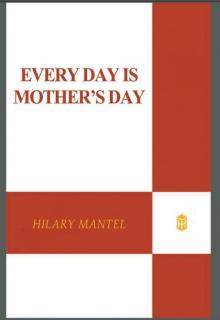 Every Day Is Mother's Day
Every Day Is Mother's Day An Experiment in Love
An Experiment in Love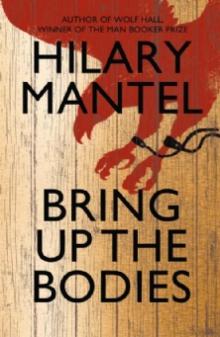 Wolf Hall
Wolf Hall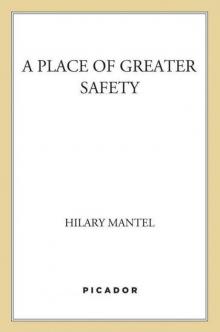 A Place of Greater Safety
A Place of Greater Safety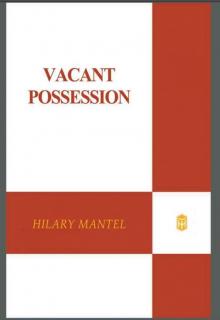 Vacant Possession
Vacant Possession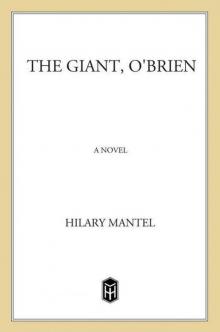 The Giant, O'Brien
The Giant, O'Brien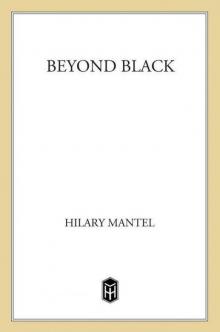 Beyond Black
Beyond Black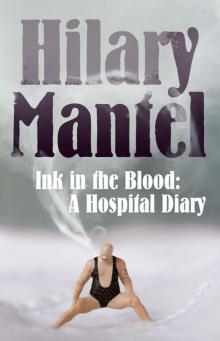 Ink in the Blood: A Hospital Diary
Ink in the Blood: A Hospital Diary The School of English
The School of English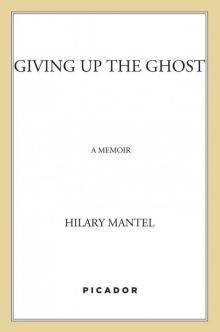 Giving Up the Ghost
Giving Up the Ghost The Mirror and the Light: 2020’s highly anticipated conclusion to the best selling, award winning Wolf Hall series (The Wolf Hall Trilogy, Book 3)
The Mirror and the Light: 2020’s highly anticipated conclusion to the best selling, award winning Wolf Hall series (The Wolf Hall Trilogy, Book 3)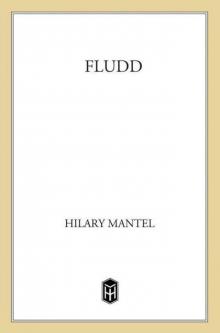 Fludd
Fludd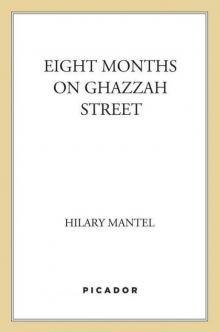 Eight Months on Ghazzah Street
Eight Months on Ghazzah Street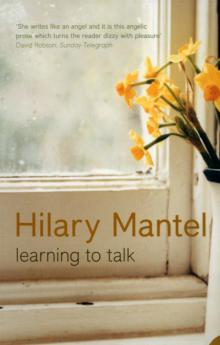 Learning to Talk
Learning to Talk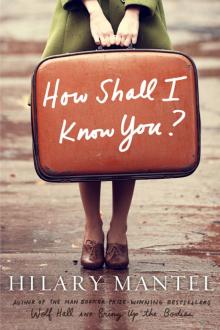 How Shall I Know You?: A Short Story
How Shall I Know You?: A Short Story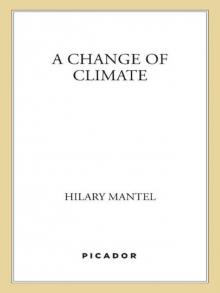 A Change of Climate
A Change of Climate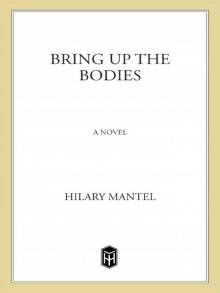 Bring Up the Bodies
Bring Up the Bodies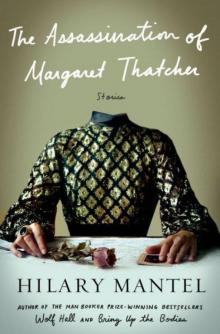 The Assassination of Margaret Thatcher: Stories
The Assassination of Margaret Thatcher: Stories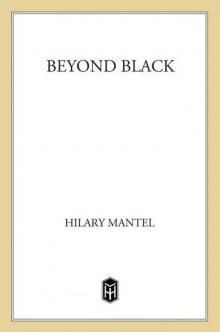 Beyond Black: A Novel
Beyond Black: A Novel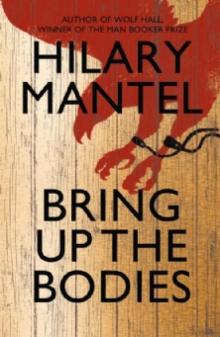 Wolf Hall: Bring Up the Bodies
Wolf Hall: Bring Up the Bodies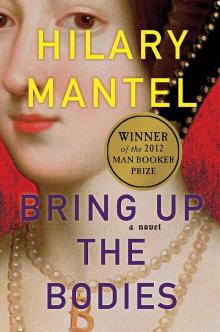 Bring Up the Bodies tct-2
Bring Up the Bodies tct-2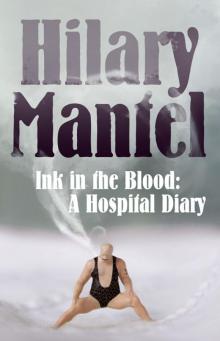 Ink in the Blood
Ink in the Blood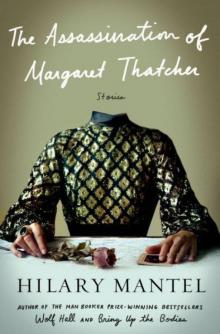 The Assassination of Margaret Thatcher
The Assassination of Margaret Thatcher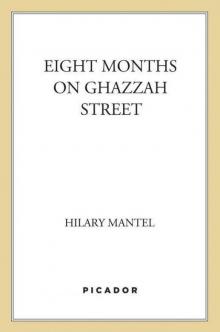 Eight Months on Ghazzah Street: A Novel
Eight Months on Ghazzah Street: A Novel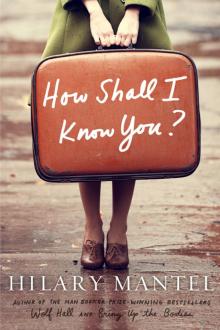 How Shall I Know You?
How Shall I Know You?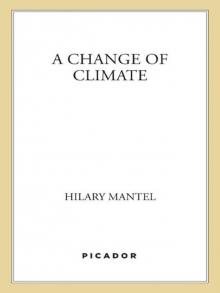 A Change of Climate: A Novel
A Change of Climate: A Novel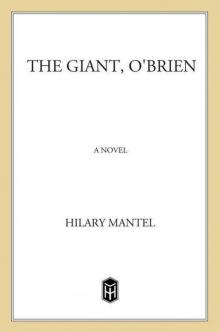 The Giant, O'Brien: A Novel
The Giant, O'Brien: A Novel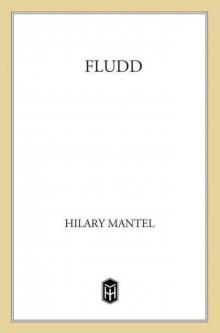 Fludd: A Novel
Fludd: A Novel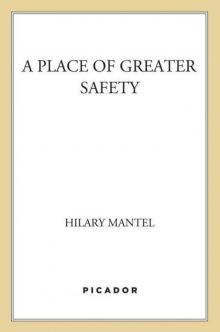 A Place of Greater Safety: A Novel
A Place of Greater Safety: A Novel An Experiment in Love: A Novel
An Experiment in Love: A Novel